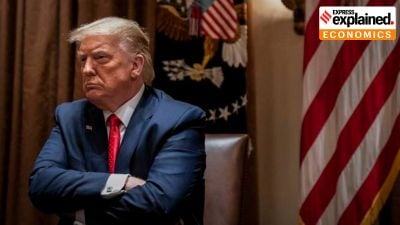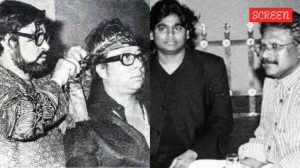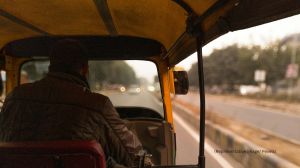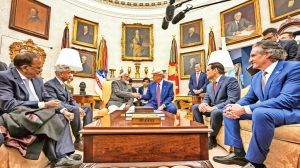‘Will AI replace lawyers, judges soon? I think not,’ says Supreme Court Justice Dipankar Datta
Justice Dipankar Datta was speaking in Delhi at the launch of a Bachelor’s programme in AI and Law at the OP Jindal Global University (JGU).
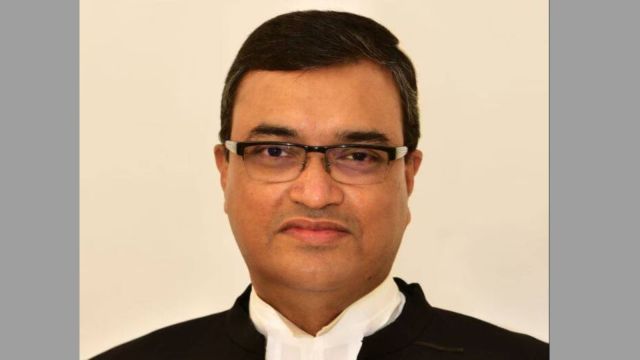 Datta was speaking in Delhi at the launch of a Bachelor’s programme in AI and Law at the OP Jindal Global University (JGU) which, according to the varsity, is the first one of its kind in Asia. (File photo)
Datta was speaking in Delhi at the launch of a Bachelor’s programme in AI and Law at the OP Jindal Global University (JGU) which, according to the varsity, is the first one of its kind in Asia. (File photo)Supreme Court judge Justice Dipankar Datta on Friday expressed his reservations on the capabilities of artificial intelligence (AI) in the legal sphere when it comes to replacing judges and lawyers.
He was speaking in Delhi at the launch of a Bachelor’s programme in AI and Law at the OP Jindal Global University (JGU) which, according to the varsity, is the first one of its kind in Asia.
“It is undeniable that it (AI) has the capacity to change academia, the practice of law and the delivery of justice… AI has to be responsibly scrutinised and critically analysed before its widespread use… Will AI replace lawyers and judges anytime soon? I think not…At least for the moment it is a misplaced notion…,” Justice Datta said.
“AI, in its present form, cannot communicate like how humans do. Litigants rely on lawyers to provide insight into their matter and apply their knowledge to help them make informed decisions. Lawyers are aware that judges may pose questions from unexpected perspectives, catching them off guard; they must therefore be prepared to think on their feet, lest they falter,” he added.
Pointing out that in a multicultural country like India, a client may take comfort in a lawyer belonging to the same region or speaking the same language as her, Justice Datta remarked, “Communication in law is key… While AI has the power to change the way in which humans interact, it is unlikely to be a substitute for humans in such sensitive professions. Communication is also a key factor for judges… Such communications have different tone and tenor, let alone different purposes.”
“Judges have different types of cases one after the other, the complexity associated with each individual matter calling for a nuanced approach, the need for understanding human values and emotions, the imperatives to be fair and just to the parties before it…etc make me believe that AI would struggle to replicate a judge… AI can and definitely has been helping judges in research and analysis, ensuring efficiency and speed… AI as a tool can bring about revolutionary changes in assisting our legal system…and can make our legal system more accessible,” he said.
Meanwhile, Solicitor General Tushar Mehta, who also attended the event, expressed his concerns over AI taking over the human aspects of legal procedures and implored that the use of AI be limited to solving logistical issues “such as number of matters, classification of matters, how to deal with those matters speedily etc.”
Mehta added, “Rather than concentrating on other algorithmic aspects of AI, please provide for a think tank which can decide how to regulate it so that it (AI) becomes our slave and not become our master.”
Union Minister of State for Law and Justice Arjun Ram Meghwal, Attorney General R Venkataramani, senior advocate Abhishek Manu Singhvi and OP Jindal Global University chancellor and Lok Sabha MP Naveen Jindal were also present on the occasion.


